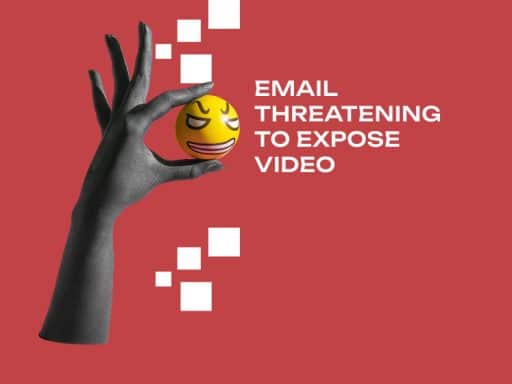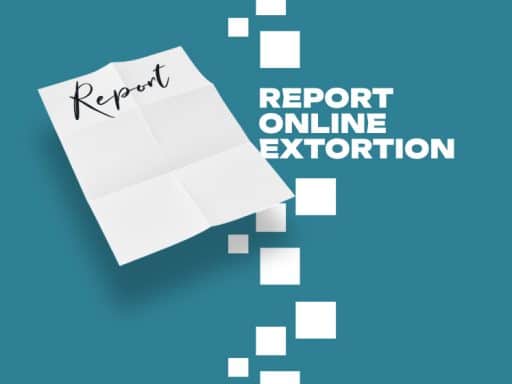If you have received a blackmail threat involving intimate images or nudes, you are not alone. Many people face this situation and while it is incredibly stressful, there are clear steps you can take to regain control and protect yourself. In this resource, we will address the most common questions victims have and guide you toward the right actions to take. The key is to act swiftly, decisively, and with the right information.
What Should You Do First?
- Stay Calm and Don’t Engage: Responding to your blackmailer is not advised as it may encourage them to increase the number or intensity of their messages. We also advise that you do not pay or comply with any other demands they may have. Delay the blackmailer while you seek assistance with this matter.
- Document the Threats: Take screenshots of any and all communications including messages, email headers, and social media profiles. You may want to save any additional files or links as evidence for the next step of this process.
- Report the Blackmailer: Report the incident first to your local law enforcement. Based on their capabilities, they may send you to more national organizations that handle cybercrime. You will also want to report the incident to any platforms where you’ve engaged with the blackmailer. Many have rules against such extortive acts and will likely ban the user’s account.
For More Information on Reporting Sextortion To The Proper Authorities, Check Out This Article.
What Can the Police Do About Blackmail?
How Can I Prevent My Content from Being Leaked?
While reporting the case of blackmail with nudes to the police and system administrators helps you seek justice, it doesn’t protect you from potential exposure. This particular act of blackmail, also known as sextortion, only has one resolution which is to get your content out of the hands of your blackmailer. That content is leverage and the threat of exposing that content is what they will use to ensure your compliance.
A cyber security expert can help identify and track your blackmailer, secure your accounts, and remove the leaked content. Their specialized tools and expertise can provide a level of protection and response that’s difficult to achieve on your own.

What If My Nudes Have Already Been Leaked?
If your intimate content has been shared online, take immediate action to minimize the damage:
- Work With Platforms & Search Engines:
Most social apps and websites have procedures for removing Non-Consensual Intimate Images (NCII). Follow their guidelines to request the removal of your images. - Seek Professional Help:
There are many free and paid resources available online to assist with content removal. They can expedite the process and ensure thorough removal from less-visible platforms.
If You’d Like To Learn All Of The Methods For Removing NCII From The Internet, We Have A Free Resource.
Getting Your Nudes Off The Internet: A Comprehensive Guide.
Steps To Prevent This From Happening Again.
Prevention is key if you want to avoid future incidents of blackmail or sextortion. Here are a few suggestions for avoiding any future cases of blackmail involving nudes:
- Be Cautious Online: Avoid sharing intimate images, even with trusted individuals and be wary of unsolicited requests for private content.
- Strengthen Your Cybersecurity: Regularly update the security settings and passwords of all of your devices to avoid issues that arise from breaches or account take overs.
- Educate Yourself: Learning about common scams including sextortion, catfishing, and romance scams can help you recognize the warning signs.
By deploying these initiatives, you can help keep you and your loved ones safe from exposure.
Should You Involve A Cybersecurity Firm?
While some cybersecurity firms work to prevent issues from happening through the installation of different security platforms, there are others that respond to incidents when they occur. This is a process known as digital forensics.
If you want the threats of exposure to stop and want to protect yourself from the scandal of a potential nude leak, you should consider working with a cybersecurity firm.
At Digital Forensics Corp. we handle cases of sextortion and online blackmail by removing leaked content quickly and thoroughly. Our first priority is to protect you and your reputation. While investigating you case, we’ll compile the information including the identity of your blackmailer which you can use as evidence if you decide to pursue criminal or civil action against your sextortionist.
If you’d like additional information on our process and potential timeline for resolution, visit our Sextortion Helpline. We have cybersecurity experts on standby 24/7 to take your call. Don’t wait call today.






